As the lead guitarist of platinum-selling hard rockers Dokken and with his solo group Lynch Mob, George Lynch was one of the most influential and visible guitarists of the 1980s. It's no stretch to say that Lynch played an integral role in defining the sound and aesthetic of the '80s shred guitar hero. He was the first major player to have a line of artist models with ESP Guitars when they initially hit the scene, his charismatic stage presence and look were often copied by hordes of fledgling shredders at the peak of the gunslinger guitarist movement, and his signature instrumental feature, “Mr. Scary," off Dokken's 1987 album, Back for the Attack, is still cited by many as one of the most vital documents of '80s rock guitar.
Unlike many of his peers, who were left rudderless after grunge wholly rearranged the landscape of rock music in the '90s, Lynch has navigated the shifting trends of the post-shred era by fearlessly following his artistic intuition. That intuition, coupled with an open mind and a remarkable passion for the guitar, has seen Lynch explore a wide range of genres and build a staggering body of work as a solo artist and featured guitarist. However, Lynch's latest venture might just be his least expected to date: an electronic-heavy industrial trio called the Banishment, which plunges his formidable guitar chops into the drastically different context of cold, futuristic synths and brutal programmed rhythms.
“Lynch Mob had a specific style and you had to stay true to that," the restless rocker explains. “Anytime we veered away from that or got experimental, people didn't dig it. They were like, “We want 'Wicked Sensation!' So I do all these other projects so I can get away with making different-sounding stuff."
With the Banishment, Lynch has worked closely with producer, electronics, and remixing whiz Joe Haze (ex-Lords of Acid) for over six years. The pair struggled to find the right singer early on—and even recorded some songs with Tommy Victor of Prong and Danzig fame—but finally found the correct voice in Devix Szell.
The trio has been teasing music via an Indiegogo campaign and is anticipating the release of its debut LP soon, but Lynch sounds like he's just enjoying the creative process and describes working with his Banishment cohorts as “liberating." The group's debut single, “Lost Horizon," is a turbulent, angst-ridden stomper that recalls the furious churn and dense layering of '90s industrial, but with Lynch's incendiary guitar riffs at its core. It's an original and surprisingly cohesive sound, not to mention a major departure from anything the guitarist ever released under the Lynch Mob moniker, which he retired last August following what he describes as a social awakening, admitting that the play on his surname was always “problematic," but is now “inexcusable" in its racial undertones.
The last time Premier Guitar spoke with Lynch, he was cruising around North Hollywood, picking up and dropping off gear with some of the most respected names in the business. When he answered our call this time, he was in a similar situation to most of us: working through the monotony of these strange times at home with the help of his guitar. The disarmingly friendly shred hero chatted for hours about the manic, arduous, and inspirational process of crafting the Banishment's exciting new LP, and the killer vintage amps and improvised recording techniques he used in the studio. He also reflected on lessons learned in the court of the tragically departed King of '80s Rock Guitar: Edward Van Halen.
Have you noticed any specific changes in your playing through the pandemic and its isolation? Have you grown as a player?
Believe it or not, I tend to be naturally a bit undisciplined and I find excuses to put off what should be my number one priority—being a guitar player. I feel I have a responsibility to my craft and my gift to maintain my chops, but when it feels like work, I shy away from it, which I think is pretty normal and relatable. The way I look at it is, if the inspiration is there, it's irresponsible to not take advantage of it and I haven't really encountered any writer's block through the pandemic, so I'll keep putting things out. What the pandemic has forced me to do is sit in my studio and play as much as possible, even absent-mindedly, because there isn't much else to do. I think that's a really healthy thing, and something I avoided doing for a big part of my career. I sort of regret that when I look back at some of my playing from back in the day and wonder how I even got semi-famous as a guitar player.
The alone time has been paying off and I feel more confident in my own skin as a player than ever before. I recognize my limitations as a guitarist, but I also realized through this that I have a style, and it's my own style that's genuine and something that I've earned. Also, I feel like I can just play much more honestly now and play things that excite me on an acoustic or an electric straight into an amp, whereas in the '80s, I needed all my crutches, like tons of gain and effects, to feel good about what I was playing. I used to rationalize that by saying “it's all part of my tool kit," but I'd put too much weight on amps, pedals, and processing for making me who I was as a guitarist and there was always a big gap between the version of me that sat down with an acoustic guitar and the version of me that got into a studio with all the bells and whistles. I always felt like that gap made my playing a little disingenuous and wanted to be able to express myself fully by relying on just my hands and my head.
That sounds like a serious breakthrough. On the other side of that, the Banishment places your guitar work in the deliberately sterile and processed context of industrial music to really interesting effect.
It's anything but raw. This project is very processed and I wanted to do something influenced directly by industrial music and embed what I do as a guitarist in that world. I love industrial and I've always listened to bands like Ministry, Prong, Prodigy, Lords of Acid, and Nine Inch Nails. I love machine music where the humanity in it comes from the singer's inflection and attitude. That contrast of a singer that sounds wild and unleashed against music that's extremely locked-in rhythmically and in tune has always been really interesting to me. It's tricky when you see the beauty in and love the energy of a style of music and want to do thatthing because you also have to be true to yourself. While I've definitely been accused of trying to do this before, you can't just wear every single hat in the store. It reminds me of when Garth Brooks tried to be a rock singer out of nowhere with that Chris Gaines record. Loving a style isn't enough to pull it off if it isn't authenticto you. So this project was done with love for that style, but while trying to stay true to myself as a guitarist.
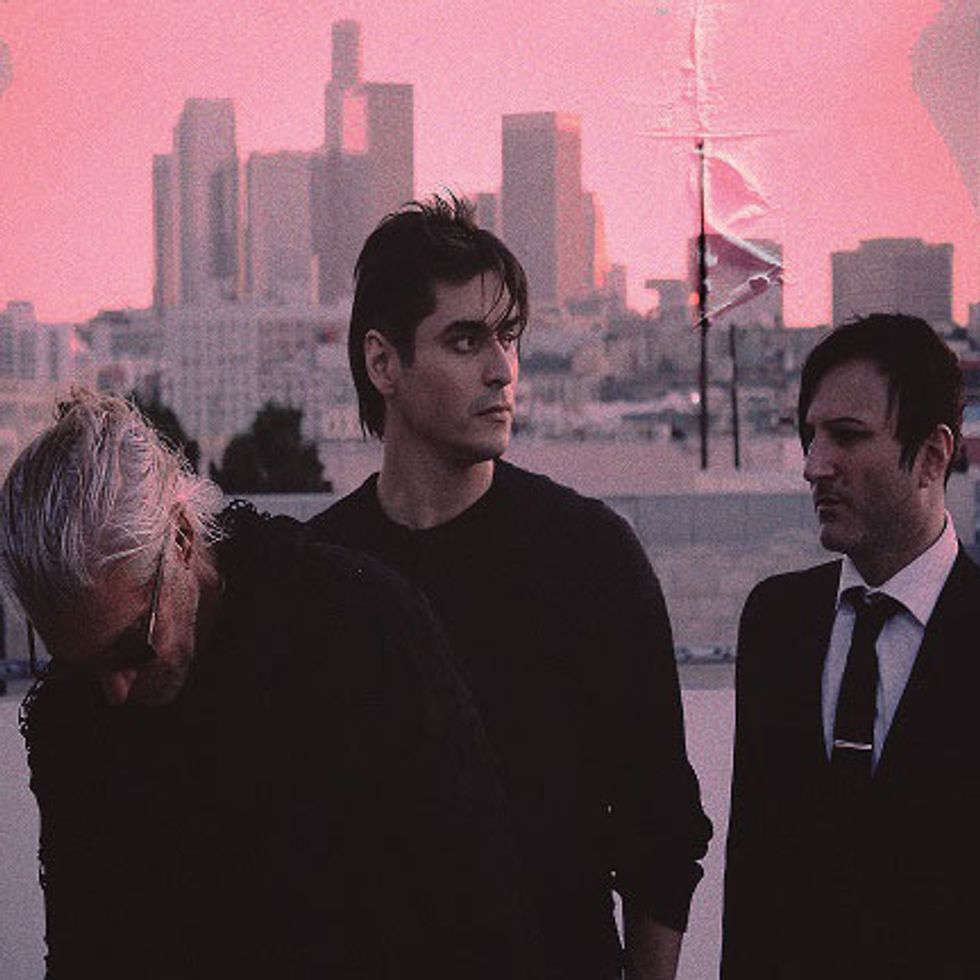
The Banishment's upcoming self-titled LP includes the lead single “Lost Horizon," which starts out with Lynch's lone, unmistakable guitar-riff stamp before launching into industrial programming by Joe Haze and vocals by Devix Szell.
The guitar on the Banishment songs still sounds very much like your work, but not glaringly out of place.
You have to be careful about hating who you are as a player. Everything I have ever done is rooted in rock and blues, and while I've never tried to do a lo-fi Delta blues record or something drastically different, I always try to stretch the boundaries and reach out of my comfort zones through different types of rock music. The truth is, I just can't see myself being happy doing Dokken and Lynch Mob records for the rest of my life. Even when I try to do those records and capture that sound intentionally, it's hard to pull off because that's just not who I am anymore. Those were made with different molecules decades ago. It can seem just as disingenuous to try and make the same record over and over again as the universe changes around you. Unless you're AC/DC, it's really hard to pull off.
What was your point of entry to industrial music? Has that been a sound you've wanted to explore for a long time?
I started listening to stuff that was a little heavier in the '90s and branched out into the industrial stuff then. I was really into the tribal rhythmic element a lot of that music had. It was groove-oriented and had a sexy thing driving it that I just loved. That late-'90s period of industrial really spoke to me, and if you ask me who I'd want to play with if I could play with anybody, my answer would often be Nine Inch Nails. I love the sound of those records, but always imagined what the kind of guitar playing that I do would sound like as a part of it. The guitar on industrial records is often an afterthought and can be really hard to differentiate from the keyboards. I always imagined what Nine Inch Nails might have sounded like if Eddie Van Halen joined the band and that's what I tried to do with the Banishment, though it developed into its own thing. There's always that Zelig effect when you collaborate where it all changes around those characters.
What was the songwriting process like for the Banishment tracks?
The initial process was Haze and I writing and mapping out the music. Haze and I have worked on this project for six years, and the tracks were first written just by riffing and shooting from the hip, then building on it with layering. We spent about a month working every day and it was very productive and really wonderful, but also very intense, and we had this massive amount of material at the end. Eventually, Haze connected with Devix [Szell, vocals] and he fit the project perfectly. Devix is a world-class artist and is deeply, genuinely sincere about everything he does. That guy is consumed by his art and it shows.
Ninety percent of the time, things started with a riff, which was layered by Haze to get the desired effect. One thing that might not immediately jump out at people is there's a lot of guitar on these songs and the guitars are tracked in a very dense way with many different colors and sonic textures, so if you stripped away the synths and programming, there'd still be tons of guitar holding these songs together. I really like the density and the intricacy in the layering of these tracks. There's a lot of colors in there and that depth begs for repeated listens and its production really makes it a piece of art much more so than a typical rock record. I feel so fortunate that we found Devix, because he's such an intense artist and really fits and completes what Haze and I have been trying to do in a wonderful way.
George Lynch rips in the upper register of one of his most iconic custom ESP guitars, dubbed Mr. Scary, onstage with Dokken in 1986. Photo by Frank White
Can you walk us through how “Lost Horizon" was tracked?
A lot of these songs developed into these long opuses with parts that never came back again and time signature changes and reprises and they got really experimental. When we started working with Devix, we realized that we had to start putting these things into a digestible format that a singer could work with. That was kind of hard to do because once you go down that progressive structure road, it's really hard to bring them back and shorten things. It felt wrong and bad, like we were killing the art, but I think these songs came out the other side much stronger for it. Going back to my being a blues-based player, I really need that balance between cerebral and emotional in my music, and it has to touch people on a simple level, too. So our big challenge with “Lost Horizon" was getting it down to something under 10 minutes.
The guitar's role in the Banishment is much more song-focused than I think a lot people might expect.
Playing in this context opens up so many more options and possibilities. If you play the same exact thing you'd play over traditional organic drums in a rock band in the context of these songs, it sounds completely different and fresh. It's also a sound that inspires ideas on guitar that I could never get away with in a more traditional rock context. The drum sounds and patterns Haze comes up with always blow my mind and inspire me, and I try to mirror those sounds and emulate them with my guitar, but I'm not Adrian Belew, so I'm still learning. I think that makes the record unique and interesting in that it's forced me into a different space as a player. We would spend all day with like 50 pedals on the floor and trying the most insane combinations of things just to try and get some weird things happening with the guitars. At one point I had an old tube Echoplex hooked up to a Sustainiac with a gate on it, which worked for a unique sound and inspired a very different kind of playing from me. Once we got in a room and got the electronics going, I felt really unconfined and like I could go anywhere musically.
Do you recall any other effects combos that were unexpected and really added a lot to the sound of the album?
One really weird one was we put a speaker in an ammo box and miked it in there. I mount my Echoplexes in ammo boxes when I take them on the road, so I pulled the Echoplex from the box and it already had a hole cut in it for a fan to keep the Echoplex cool, so we could mic a speaker easily. It was just for one little part, but it was so cool sounding! There was another part on the album when we were trying to get different reverbs and we actually threw a speaker and a mic in an old metal trash can. It was a super reflective, metallic, and brash sound that was very unique. I'm just proud of the fact that we built those sounds and rigs ourselves—duct-taped the lid and made the thing work! It was really refreshing to work like that.
One of the things that I brought back was my old Tom Scholz Rockman X100 rack unit. They're really noisy, but they do this thick, chorused thing that I used to use in Dokken to thicken things up. I forgot how cool that thing is and it was fun to create very modern-sounding music with some of the old devices that I had used in the '80s. I don't think too many people would consider using a Rockman today, because they're so noisy and they were always sketchy and you always had to fiddle with them to get them to work, but they do a thing that nothing else does. It was actually a pretty big part of my sound on Dokken's Under Lock and Key, which is the best-sounding record we did in my opinion. That Rockman is on every track in the rhythm guitars on that album and is sort of the glue in those tracks. We already had all of my big tube amps tracked and we were working with Michael Wagener and he suggested we plug a pedal direct into the board to add another sound to the guitars. I was, like, “Yuck! Why would I wanna do that?!" and he just said, “trust me." We ended up using the Rockman direct, and Michael just tucked that sound in with the other guitars and it magically glued it all together and made it sound so cohesive and fat sounding. On its own it sounded like shit, but in the mix, it filled in all the frequencies that the big amps were missing. It's a great trick that I had learned from Michael, forgot, and had to relearn on this album.

Guitars
ESP George Lynch Signature Super VAmps
Diezel Herbert (modified for less compression)1968 50-watt Marshall Plexi
1965 Fender Bassman
Vintage '50s tweed Fender Deluxe
Vintage Music Man HD-130
Roland Cube 60
Traynor YBA-1 Bass Master
'80s Tom Scholz Rockman X-100
1970 Hiwatt 4x12 Cab w/purple-back Fane speakers
Effects
VariousMicrophones
Royer R-121Sure SM57
Strings and Picks
D'Addario custom string sets (.011–.046)Dunlop Eric Johnson Jazz III picks
InTuneGP Richie Faulkner signature 2.0 mm picks
Various coins
What I like about some of the old school gear is it's really easy to play on. All of the '80s effects and all that saturation and processing and distortion … and I don't normally use that kind of gain anymore. Once in a while I go back to those sounds and it's incredibly easy to play and really fun, but it also feels a little juvenile and like cheating somehow. I also feel that way when I use .09s.
What were the main guitars used on the Banishment album?
The main guitar I used was one of my ESP Super V signature models, which is a variation on the Flying V shape. It's got a tilt-back headstock, a PAF-style humbucker in the bridge, and a humbucker-sized P-90 in the neck. The main thing I was looking for is, I wanted something very early '60s Gibson-ish, because when I was a kid, my first good guitar was a 1960 Les Paul Special. The Super V was designed to emulate the feel of that guitar, but with a different shape. So that guitar felt really comfortable and I used that one the most on this record.
Let's talk amps. What were the star amps for your guitars on the album?
I used my Diezel Herbert quite a bit. The thing about the Diezels is they have a lot of compression, and I had that amp modified with a knob on the back to dial back the compression and open it up a bit, but that amp was my main workhouse. I pretty much use one 4x12 cab that I keep miked up all the time and that's a 1970 ported Hiwatt loaded with purple-back Fane speakers. I mic that with a Royer R-121 and rotate between an SM57 and a rare '60s RCA ribbon mic that can handle high SPL, so you can put 120 db into it and the ribbon won't shred. I'd hook up a variety of amps with a Radial JD7 Injector, so I could run through a few different amps at once, and things got pretty complicated during the overdubs. I used my original Marshall plexi, a '70s Traynor YBA-1 Bass Master that takes pedals really well, a '65 Fender Bassman, a vintage Fender tweed Deluxe, or a Music Man HD-130. I also used an old Roland Cube 60 on some solos. They sound really warm and they're surprisingly great amps that you can just shred on because they've got gain for days. I was just in this manic state about trying anything I wanted to, and Haze and I fed off that mood and just tried tons of things.
I'm really more of an amp guy than I am a guitar guy. There's an art to tube selection, and I don't believe in matched sets. I think that's just a marketing ploy. I've had my best results just ear testing tubes, and I bias tubes by ear as well, within reason because I don't want to hurt the amp.
It also sounds like the gear was a huge part of your creative process this time.
Tone-questing like that gives you purpose! I have lots of friends throughout the guitar world, and our hobby is sharing and talking about this stuff, all day, every day. As we've done this interview, I've had a friend texting me links to some gear on Reverb. It never ends and I love the culture of it! I get up in the morning and I still look forward to it all!
I've also entertained this other school of thought in recent years, and that is when I started out as a kid, I had one guitar and one amp and no money, and I had to mow lawns all summer to get those things. I made those tools work! There's something to be said for the beauty and simplicity of making things work out of necessity. I've entertained the idea of trying to work with just one amp and one guitar again. Then there's no distractions and you shed the option anxiety of auditioning all these amps and pedals and plug-ins, which is fun, but at the end of the day, what stuff do I really, really need and use?
George Lynch has been playing ESP guitars since the 1980s. In this photo from 2005, he's playing his custom ESP Kamikaze-1 in Poughkeepsie, New York. Photo by Frank White
Eddie Van Halen has come up a few times in our conversation, and the impact he had on your generation of guitarists in particular is hard to overstate. With Ed's passing, it feels like there's been a real sense of community as guitarists have mourned him, and I wanted to know what he and his playing meant to you as a peer that interacted with him and as someone that watched him change guitar culture forever from the ground level.
He probably had the most profound influence on me of any contemporary guitar player outside of the original four horsemen that I was raised with, and I won't lie about it. Ed changed the way I played. I've had people say through the years, “Weren't you guys contemporaries and weren't you guys kind of doing the same thing at the same time?" The truth is, Eddie was a force of nature and I was just another L.A. guitar shredder. When Ed came along, I was blown out of the water just like everybody else. I had to reevaluate who I was and rethink my style. I bit a lot of what he did and incorporated a lot of it into my playing, so part of what Ed did lives on through me and I say that proudly, but I won't try to take credit for it. Ed worked really hard at what he did. He had a natural ability, but he also never stopped playing guitar, and that's one lesson that I learned from him and I'm still working on. There is no replacement for just sitting there and playing purposefully. Many, many times I just sat with Ed in a room and watched him do that. As much effort as we all put into dissecting his sound or his gear, the truth is it was just in his hands, because the guy played every single day and he was dedicated. That's why, when he played without an amp or just naked, it was all still there. That was my big takeaway from spending time with him. Eddie helped me up my game in so many ways: the pursuit of tone, my overall playing approach, the way I built my bands, the way I performed, discipline in practicing. Eddie's influence morphed me into the guitar player I am today.
Ed and I shared a lot of gigs, but we became the closest during the Monsters of Rock Tour, when we'd just hole up in hotel rooms and jam almost every night. It was there that I learned the true power of Ed's discipline and what an incredible gift he had. I'm almost ashamed to say this, but when I would sit in a room with him, I always felt like I couldn't hold a candle to him. And he'd say nice things and ask how I did this or that, but I really realized how far I had to go still when I would sit with him. I spent the following decades trying to become a guy that had the kind of depth that Ed had, and it was just great being that close to him and exposed to a living legend. I appreciate that he really just dedicated his life to the things that mattered most to him: his playing, his family and son, his band, and the fans. And he did the best thing you could do in this life in leaving a gigantic legacy that benefited millions of people in a positive way. What else could you ask for? We've had a lot of losses this year, but losing Ed has been really tough in a very deep way for the guitar community. It's really another level of loss for this culture and he'll be truly missed.
George Lynch performs his signature guitar instrumental, “Mr. Scary," live in 2012.


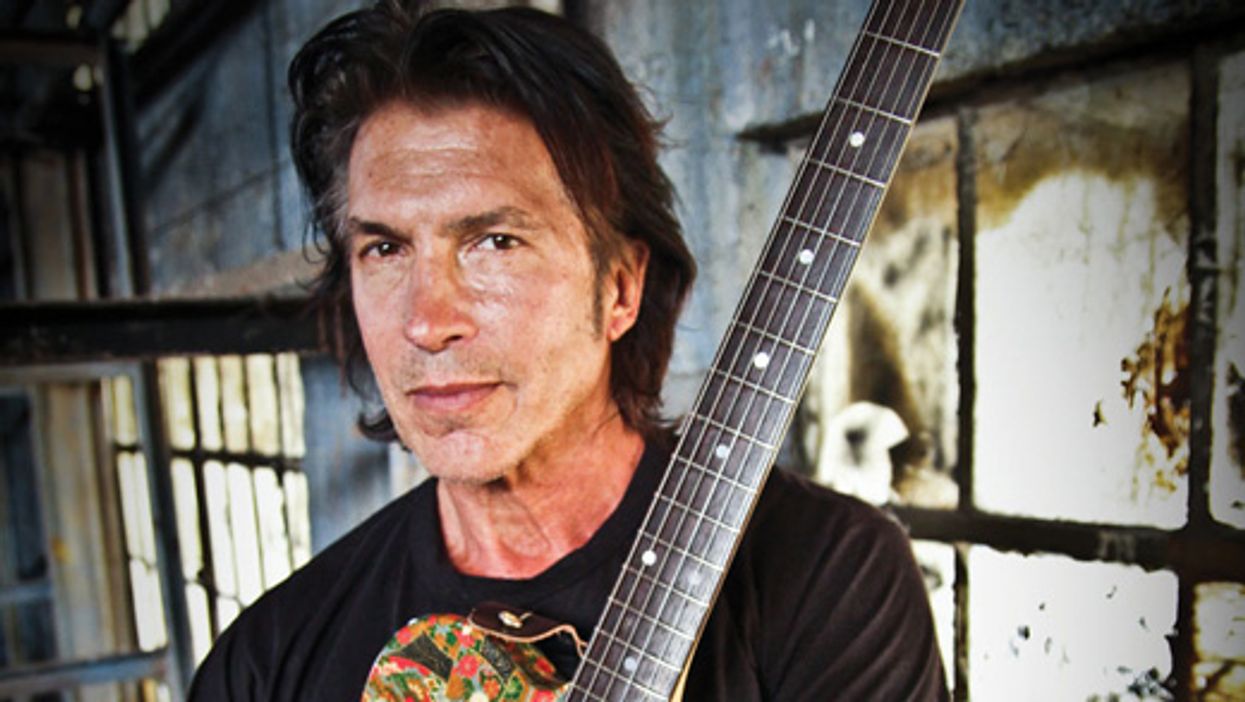
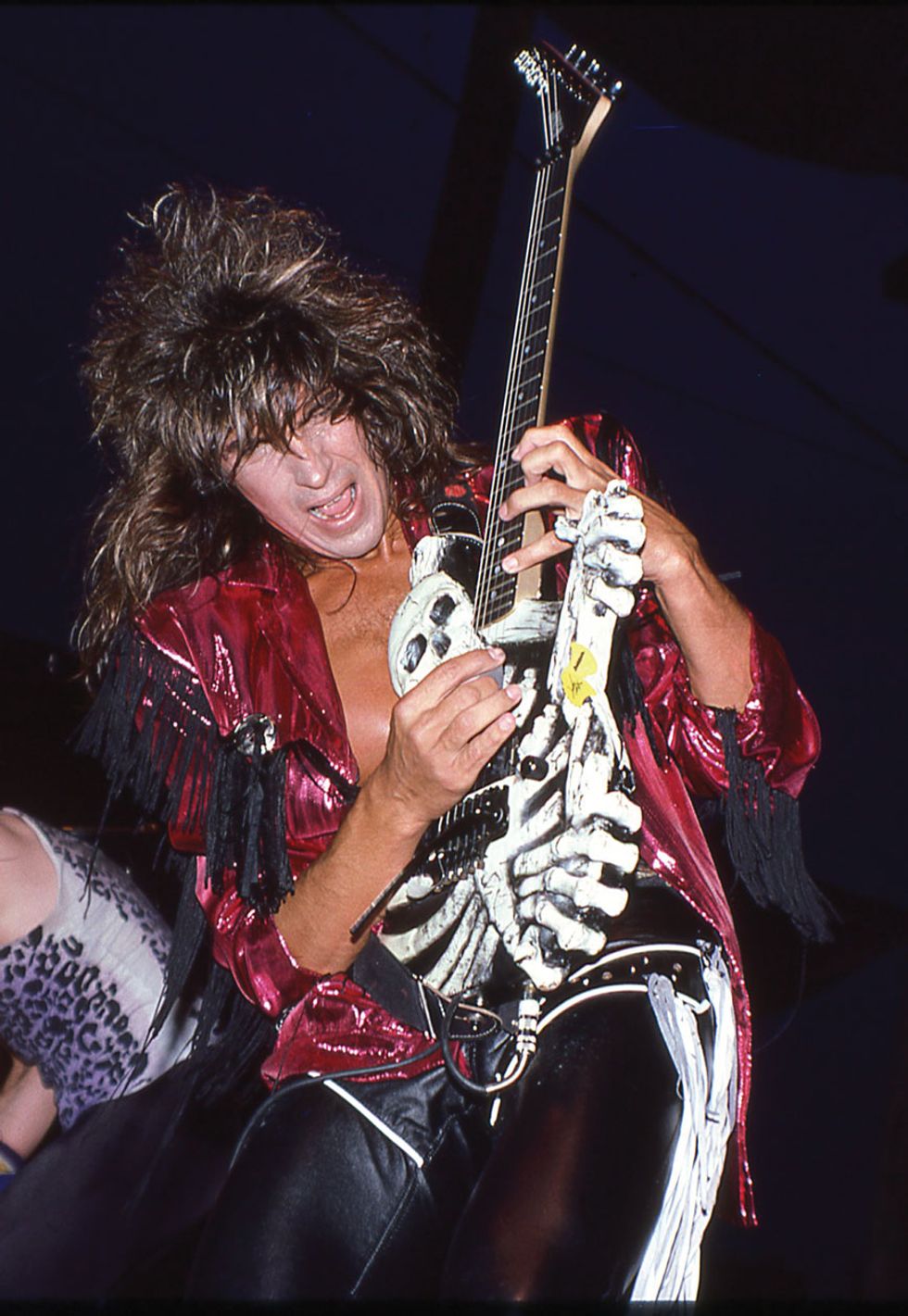
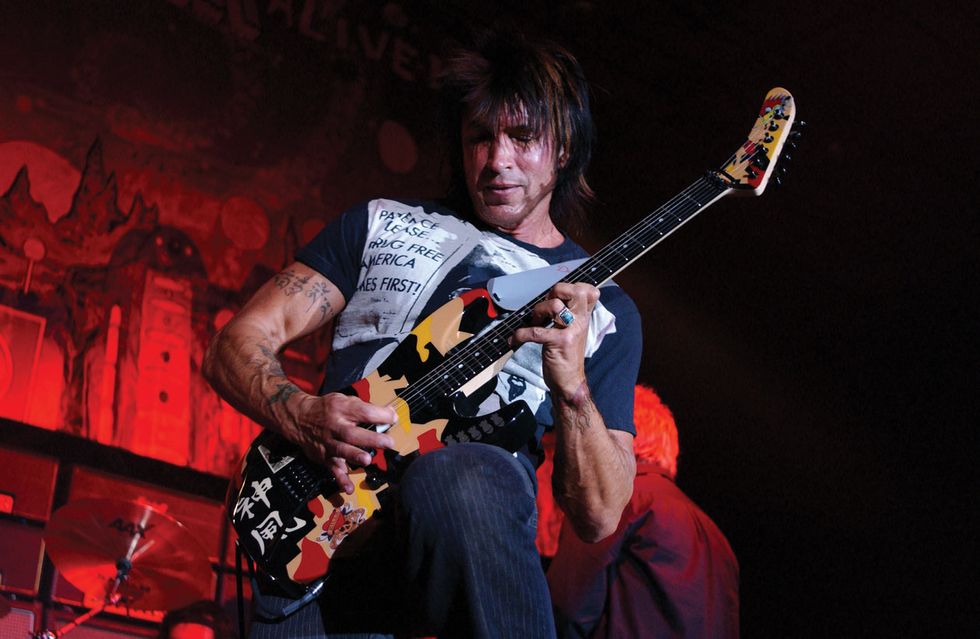







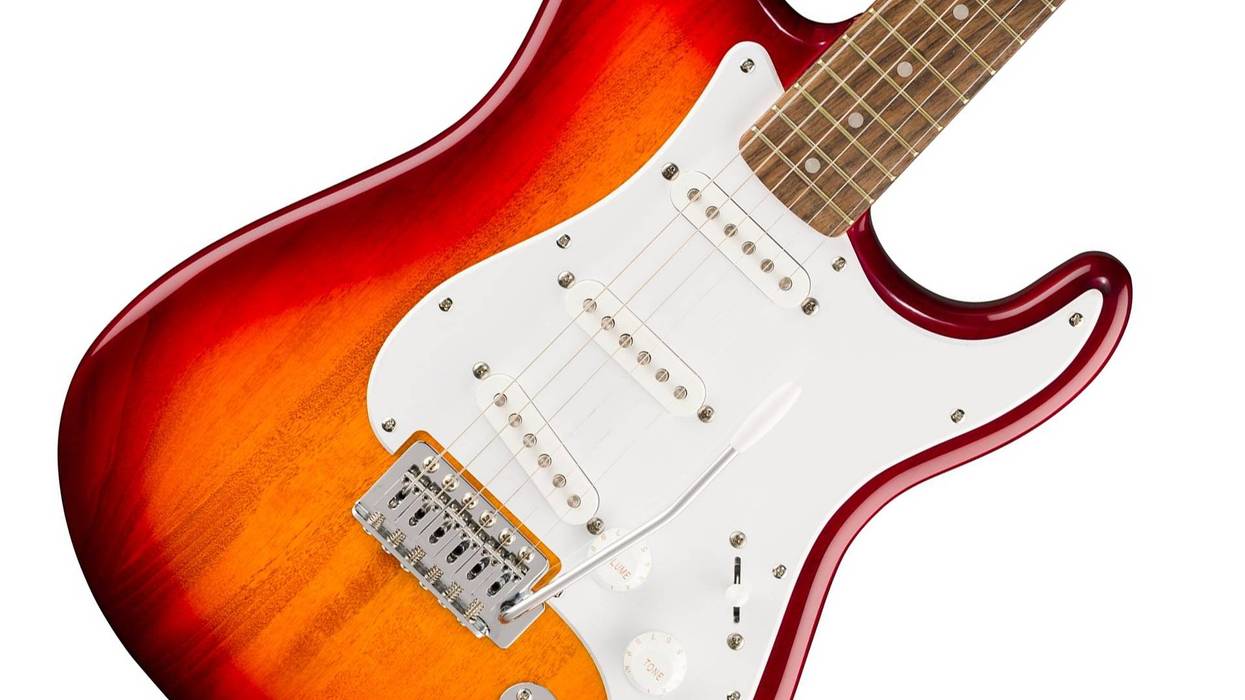
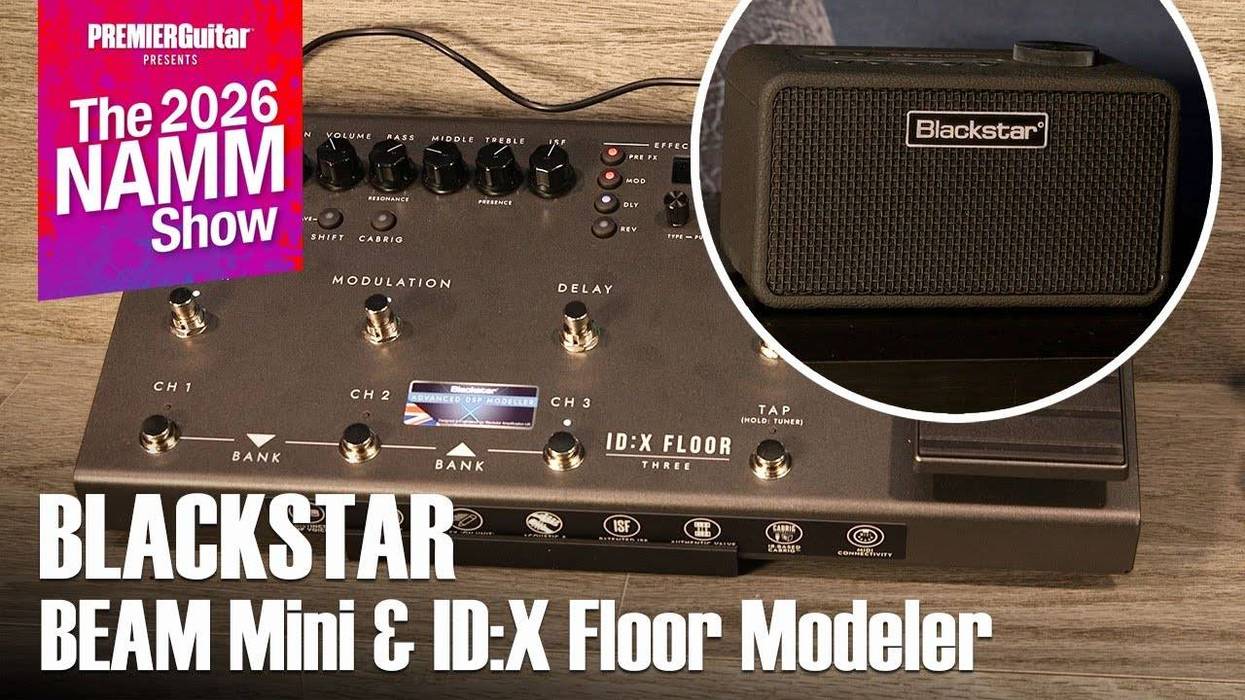

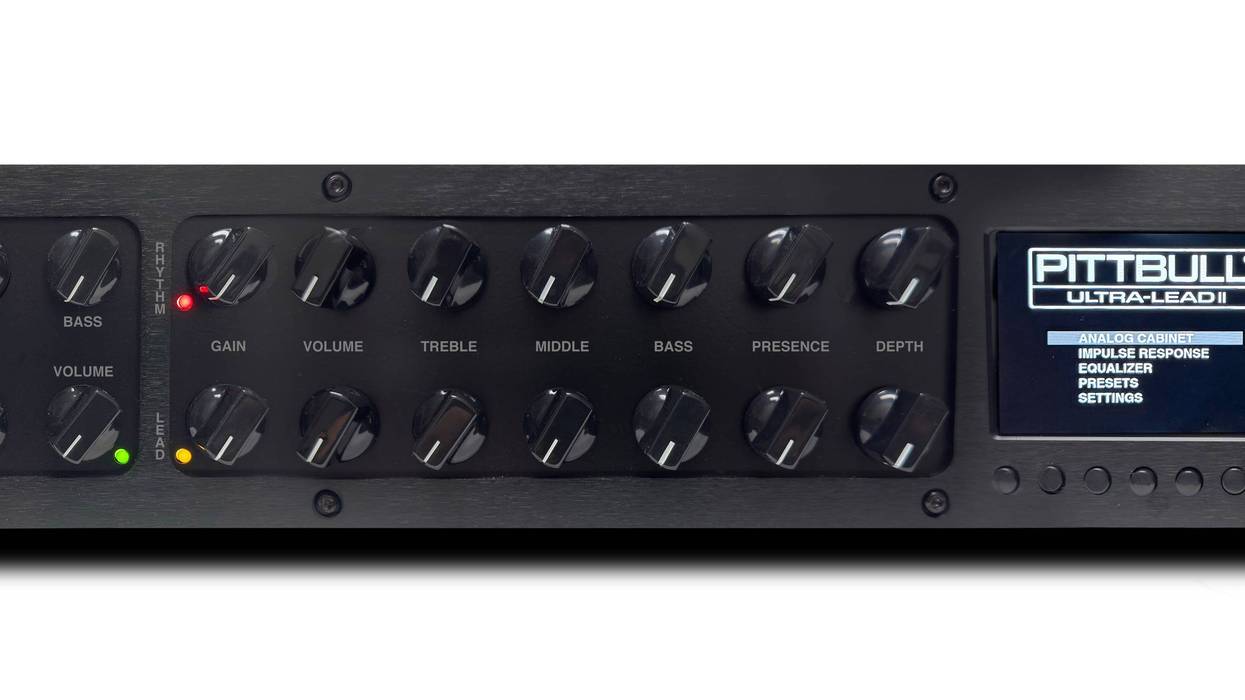
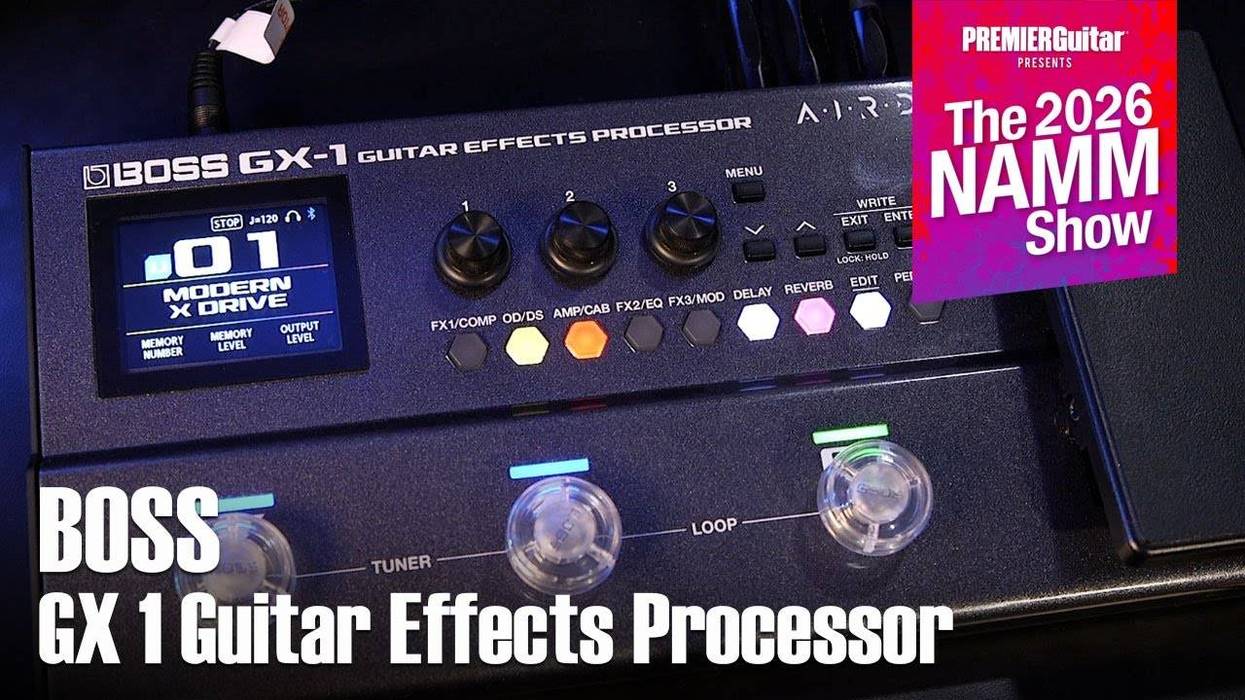
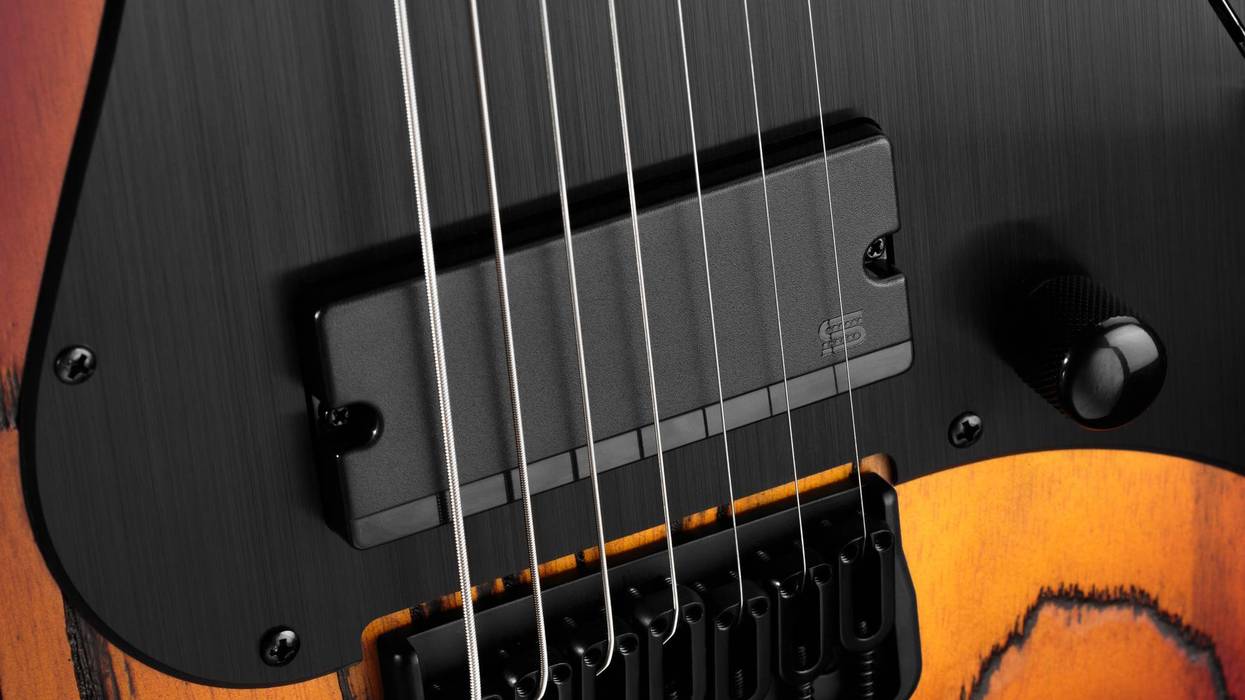

![Rig Rundown: Russian Circles’ Mike Sullivan [2025]](https://www.premierguitar.com/media-library/youtube.jpg?id=62303631&width=1245&height=700&quality=70&coordinates=0%2C0%2C0%2C0)
















![Rig Rundown: AFI [2025]](https://www.premierguitar.com/media-library/youtube.jpg?id=62064741&width=1245&height=700&quality=70&coordinates=0%2C0%2C0%2C0)











